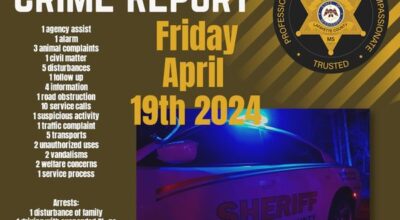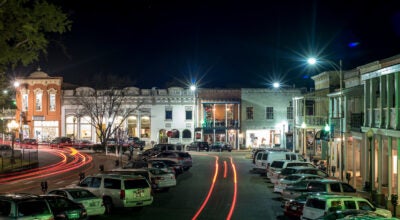Proposed hotel tax to fund county tourism
Published 11:29 am Thursday, January 4, 2018
The Lafayette County Board of Supervisors voted in favor of presenting a 2 percent hotel tax to state legislature at their meeting on Tuesday.
Revenue from the proposed tax, which is considered local private legislation, will be used to fund construction of the new multipurpose facility and amphitheater on County Road 406 and management of the facility, as well as marketing campaigns to promote tourism across Lafayette County.
Board president Jeff Busby says the tax, if implemented, will fund facilities and programs including archery, barrel racing and programs for groups such as local 4-H clubs and OPD’s mounted patrol.
“We’ve got baseball, basketball and soccer already, but we don’t have,” Busby said. “It’s something we as a board felt needed to be addressed.”
He also said he hopes the facilities funded through the tax will attract competitions and tournaments to the area.
Board member Kevin Frye says the proposed tax will be an alternative to raising property taxes for Lafayette County residents.
“In order to manage things well, you have to have revenue, and rather than tax only residents, this is a way to make that work,” Frye said. “It’s not a unique tax, it’s not something we’re asking for special. Anything we can do to help the tourism industry that already exists here is going to help the entire region.”
Frye also says, if enough revenue is generated, the tax will fund parks and athletic facilities in far-reaching areas of the county, where getting to FNC and other parks in Oxford City Limits every day isn’t always a possibility.
In addition to providing facilities for county residents and competition-goers alike, the tax would also go towards constructing an amphitheater on the property. This is something Busby says will draw a wide audience from Lafayette County and the surrounding area.
“We want to be a diverse town,” Busby said. “It gets stagnant if you focus on one thing.”
In addition to funding appropriate management for the facility, another way the tax revenue will be used is funding marketing and promotional materials in “national publications,” Busby says.
The proposal, written by county attorney David O’Donnell, will be presented by the legislative team in the the coming weeks during the 2018 state legislative session.
Bids for the multipurpose facility will be back in mid-February, and construction could start as soon as the next three or four months.





